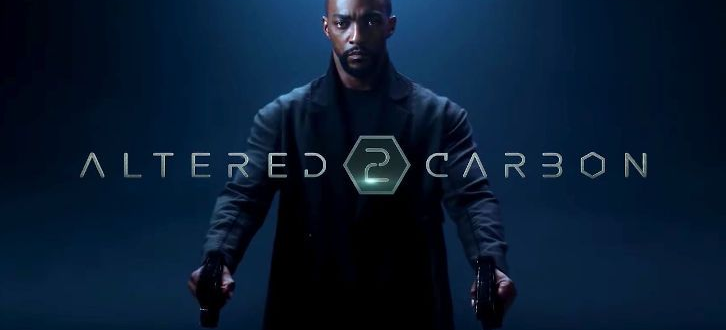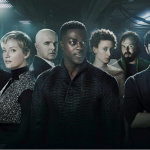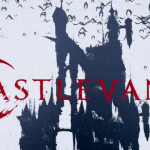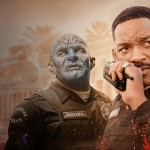Altered Carbon Season 2: A Tale of Two Takeshi Kovacs
I approached the second season of Netflix’s Altered Carbon with some hesitation. In so much as I generally enjoyed the first season, returning to the Settled Worlds meant negotiating two roadblocks. The first is that I find Richard Morgan’s (author of the Altered Carbon novels) worldview, as evinced in recent Twitter takes, wholly incompatible with my own.
Second, Broken Angels and Woken Furies, the second and third Takeshi Kovacs novels, are generally dull affairs. Both books feature drawn-out side quests that invited any number of questions about when the texts might do me the service of framing the actual conflict. The idea of a season of television based on Broken Angels, which reads very much like a novella standing on stilts while wearing a novel’s overcoat, was not an exciting prospect.
Yet these issues never seemed to insinuate themselves into the DNA of Altered Carbon’s sophomore year. In fact, this season left me with a clear understanding that what we are watching is Altered Carbon via showrunner Alison Schapker and series creator Laeta Kalogridis. Mr. Morgan’s name might appear in the credits, but this is no longer his story. From the ashes of Takeshi Kovacs rises Takeshi Kovacs, a much more interesting character.
AC2 picks up thirty years after the first season’s conclusion. During that time, former Envoy of the Uprising Takeshi Kovacs – now played by Anthony Mackie – and Poe the AI – delightfully reprised by Chris Conner – have been tracking the lost digital soul of revolutionary leader Quellcrist Falconer – once again brought to life by Renée Elise Goldsberry. This quest to find someone who is at once Kovacs’ lost love as well as his personal Che Guevara gives TV-Kovacs something we only saw after some 900 pages with Book-Kovacs: a purpose. Tak in the books is a miserable bastard who likes killing for the sake of killing. We see much of that with Kinnaman-Kovacs. Mackie-Kovacs has an actual arc. Pivoting the character gives the audience something more substantial for their time than various tableaus in visual excess.
Such a change demonstrates that Schapker, Kalogridis, and their writers are not going to be bound by the source material. The story skips to Harlan’s World, Kovacs’ home planet and the setting of the third novel, without setting foot on any of the planets found in the second novel. It likewise picks a handful of characters from the novels to feature in this story, regardless of their former function or setting. This shameless hybridization is delivered with such precision and purpose that I no longer care about the deviations from the source material, past or present, that were necessary to get us to this point.
One could, for example, say quite a lot about how Goldsberry-Quell’s politics of “immortality is bad” are far simpler than anything we see from book-Quell. Certainly, a comparison between the two philosophies would be an interesting intellectual exercise. Yet it would also be a dull exercise when the series’ combination of Quellcrest Falconer and Virginia Vidaura, book-Kovacs’ mentor and eventual lover, makes for a more developed character.
Should one choose to accept what is offered, to borrow a phrase from the common Quellist philosophy, one will also find this season’s eight episodes telling a story that is largely self-contained from the first season. It is entirely possible to treat the first and second seasons as anthologies within the same universe. Kovacs and Poe bind the setting together, but new characters combined with actors reprising past roles offers context and backstory in a way that Joel Kinnaman’s narration could never manage to sell.
On the subject of actors, special attention must be paid to Anthony Mackie’s effortless demonstration of Takeshi Kovacs a haunted man.
So what, Adam, Kinnaman did that, as well.
Right, but the structural difference between then and now is that season two’s writing does not allow Kovacs to presume he is special on that account. This season makes space for other characters to have their own conflicts that exist in parallel or askance to Kovacs being brought to Harlan’s World. Character growth and meaningful interactions among the ensemble cast replaces Envoy magic and smug glowering as the energy that drives the story. In other words, Kinnaman acted around the cast; Mackie engages with them.
As for my fears that Morganian worldviews might insinuate themselves into the second season, well…they never came to pass – at least not so far as I could see. As in all things, lived experience will make for stronger insights than what I can offer. Be that as it may, I saw nothing egregious at hand.
For a time, Kovacs, a man, is wearing a woman’s sleeve. This isn’t played for laughs or the benefit of the male gaze. It’s simply a part of the story. When Simone Missick’s – AKA Misty Knight of Luke Cage and Iron Fist – Trepp, a Harlan’s World bounty hunter, borrows Kovacs sleeve, it is just another Tuesday for her and Kovacs. I recall a line from Altered Carbon’s first season: a person is not their sleeve. Season two finally seems to have come to terms with the scope of that motif.
There are also the little things that make Altered Carbon’s second season stand out among a sea of otherwise middling narrative offerings. Asian men don’t play to the tropes of martial artists or impotent math guys. Lesbian characters don’t get fridged. The primary cast is filled with people of colour, and there’s not a whiff of narrative apology to make white people feel better about things.
In many ways, Altered Carbon’s second season is a chance to bring back the audience who wanted to like the first season, but bounced off it for any number of reasons. The seamless integration of the first season’s story into the second invites new viewers to jump in without playing catch-up. More importantly, Altered Carbon’s step back from its origin as a hard-boiled cyberpunk detective-noir story gives it a stronger voice. There is now room for compassion and light in a story whose conflict is driven by a struggle against wealth and excess. The intangibles of humanity, so often talked about but never reflected in a first season preoccupied with an exploration of decadence, now propel this second season along a much more meaningful path toward revolution and social upheaval.













